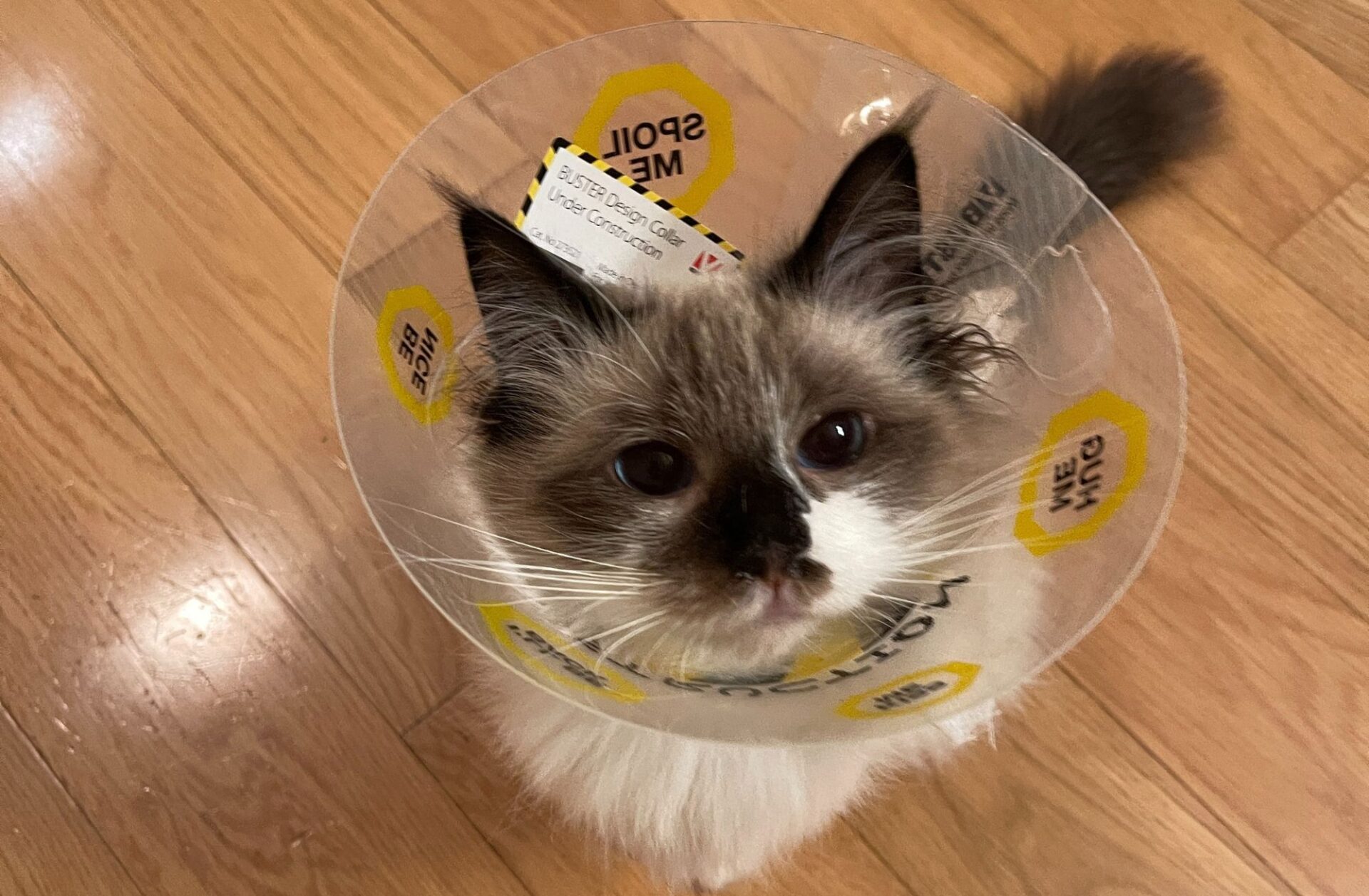Table of Contents
The Morning Everything Changed
It was a calm April morning. Mena’s two cats, Ronny and Sassy, sat together on the covered deck, watching the sunlight move across the floorboards. It was their favorite spot to start the day.
When Sassy padded back inside, Ronny didn’t follow.
At first, Mena thought he was nearby, maybe distracted by a bird or a rustle in the trees. But as the hours passed and his food dish stayed full, worry began to set in. Ronny wasn’t just any cat. He was three years old, declawed, and not built for life outdoors.
“I was so worried,” Mena recalls. “He couldn’t defend himself out there.”
That day turned into a week, and then into a long, quiet summer without him.
The Search That Wouldn’t End
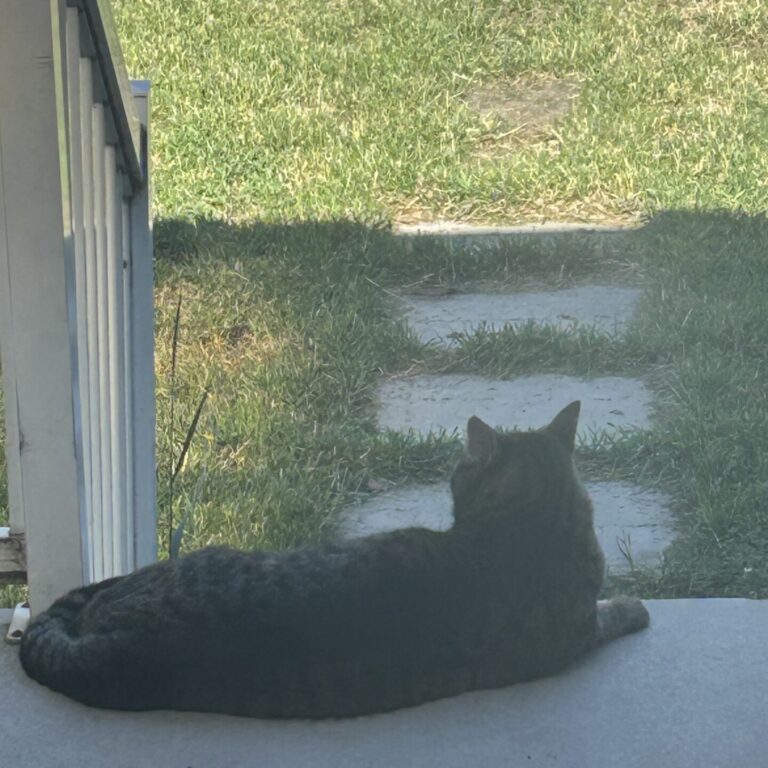
From the start, Mena and her family refused to give up.
Her daughter posted photos of Ronny on Facebook and offered a reward. Mena and her husband went straight to the Cranbrook SPCA to report him missing. They spoke to a kind staff member named Mary, who promised to keep an eye out.
Every morning, they set out Ronny’s litter box. Every night, they shook a container of Temptations treats, calling his name into the trees.
Their home sat near a community forest, a beautiful place but full of dangers for a declawed cat. Mena’s husband told her gently that it was unlikely Ronny could survive. Still, she held onto hope.
“It was a long summer,” she says. “Every day we’d shake that treat container and call for him. We never stopped.”
Once a month, they checked in with the SPCA, hoping for news. Every time, it was the same answer: nothing yet.
The Call They Had Been Waiting For
On October 18, more than six months after Ronny disappeared, the phone rang.
It was Mary from the SPCA. Two cats had been brought in that day, and one looked just like Ronny. She sent photos right away. Mena’s husband studied them closely. The face was thinner, the fur rougher, but something about the eyes felt familiar.
When Mena got home from work, they drove straight to the shelter.
“It was really him,” Mena says, smiling at the memory. “He looked fantastic. He knew us right away.”
The moment Ronny heard their voices, he purred and rubbed against their legs as if no time had passed at all. When they brought him home, he went straight to his food dish, then curled up beside Sassy and their dog like nothing had happened.
After half a year missing, Ronny was finally home.
Lessons From a Lost Cat
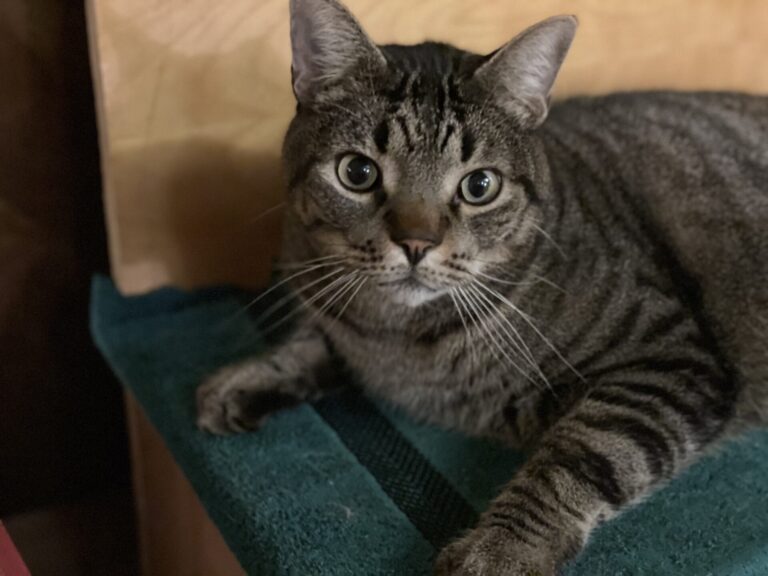
Ronny’s disappearance changed how Mena thought about pet safety.
“If I were to get a new cat,” she says, “I’d keep it indoors as much as possible. Maybe even build a catio.”
She believes the experience scared Ronny as much as it scared them. Now ten years old, he still spends his mornings on that same deck, but he never strays far.
“I never gave up hope,” Mena says softly. “But I feel so sad for people who lose their pets and never find them. My heart aches for them.”
The Importance of Identification
Although Ronny was not found through a microchip or tattoo, his story shows how crucial identification can be in reuniting lost pets with their families.
A visible tattoo or registered microchip can make the difference between months of heartbreak and a phone call that changes everything.
Microchips and tattoos are permanent forms of ID that connect pets to their guardians through secure databases like the BC Pet Registry. The registry keeps guardian information safe but accessible to veterinarians and shelters across British Columbia, ensuring faster reunions when pets are found.
Collars and tags can fall off, but a registered microchip or tattoo lasts a lifetime.
The Power of Hope and Community
Ronny’s return was not only a personal victory but also a reminder of what compassion and community can achieve.
The SPCA staff who answered the call, the people who shared Ronny’s photos, and Mena’s unwavering persistence all played a part in bringing him home.
That experience inspired Mena to give back. Today, she fosters cats through the SPCA, donates bottles to raise funds, and supports the organization whenever she can.
“My daughter even adopted two cats,” she says proudly. “They’re indoor cats.”
What Ronny Teaches Us Today
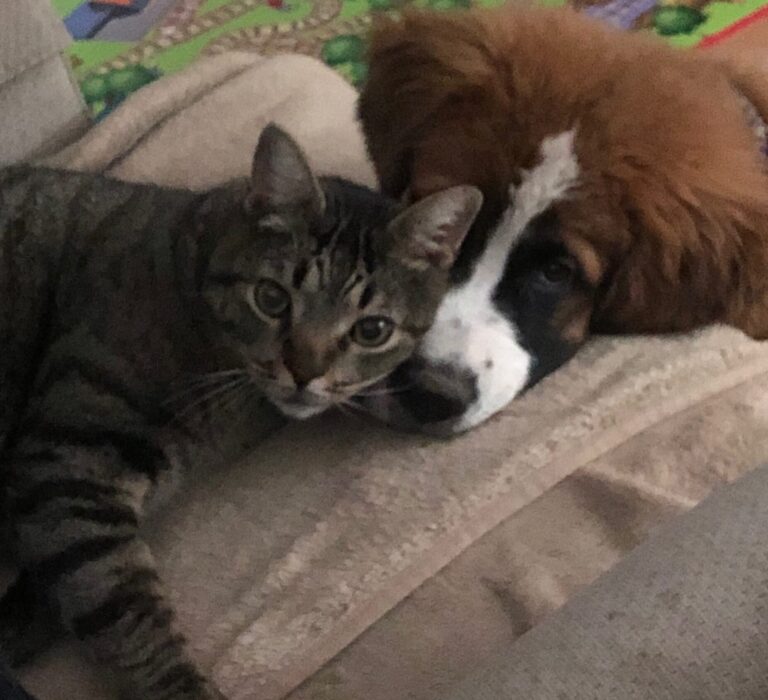
Ronny’s story is filled with hope, patience, and the reminder that even when the odds seem impossible, love finds a way home.
It also highlights how every small action, from registering a pet’s ID to calling a shelter, matters more than we realize.
- Collars aren’t enough. They can break or fall off.
- Microchips and tattoos are permanent. They stay with your pet through everything.
- Registration is the bridge between lost and found.
- A caring community can make all the difference.
Protecting Your Pet
Inspired by Ronny’s story? Here’s what you can do today:
If your pet already has ID:
- Log into BC Pet Registry and confirm your contact info is current.
- Add a backup contact, like a friend or family member.
- Keep your pet’s ID number saved somewhere safe.
If your pet doesn’t have ID yet:
- Book a microchip appointment with your vet or local BC SPCA.
- Register it right away to make sure your contact info is linked.
- Consider both tattoo and microchip for double protection.
For every pet guardian:
- Keep updated photos of your pet.
- Check your pet’s chip annually at the vet.
- Share this story. It might inspire someone else to register their pet today.
Be a Part of the 80% Responsible Owners
During our recent events, we scanned hundreds of pets, all with microchips implanted. Only to discover that approximately 20% of the pets’ microchips are not linked to any registries in North America. We recommend all pet owners to double check their pet’s registration and directly registering with us. All you need is the microchip number and/or tattoo code to start the online registration process. For a small, one-time fee of $45, your pet will be protected for a lifetime and you will also have contributed to the life-saving work of the BC SPCA.
The Bottom Line
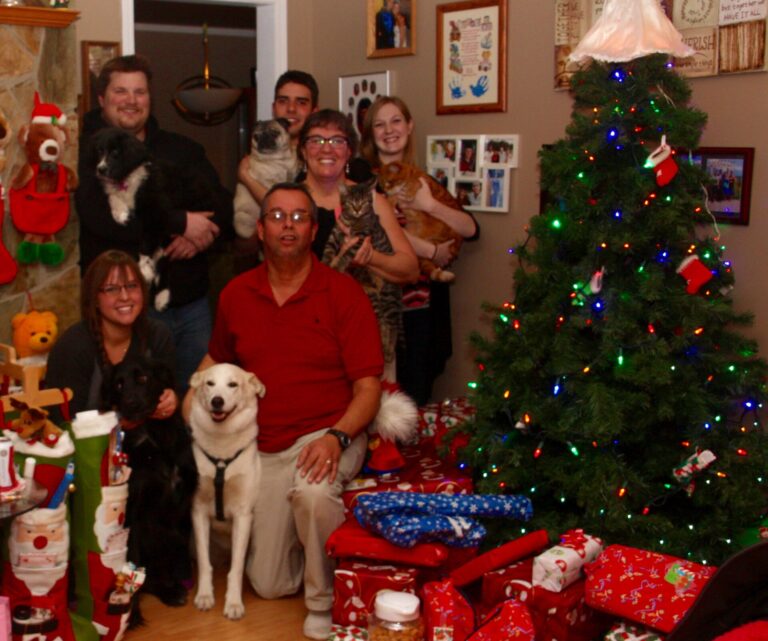
Ronny’s story is a beautiful reminder that hope, persistence, and compassion can change everything.
Not every lost pet gets the chance to come home, but with permanent ID and an up-to-date registration, more families can experience the same miracle that Mena did.
Permanent ID saves lives. It keeps families together. And it gives every lost pet a voice when they need it most.
👉 Register Your Pet Today – $45 for lifetime protection.
FAQ
Q: How often should I check my pet’s registration?
At least once a year, or any time you move or change your phone number.
Q: My cat never goes outside. Do I still need to microchip?
Yes. Even indoor cats can slip out during moves or emergencies. Permanent ID ensures they can be traced back to you.
Q: Can I register both a tattoo and a microchip?
Absolutely. Having both increases the chances of a quick reunion.
Q: What should I do if I find a lost pet?
Take them to a vet or shelter for a free microchip scan and tattoo check. Staff will help contact the registered guardian.
Q: Why should I choose the BC Pet Registry?
The BC Pet Registry is non-profit, secure, and accessible by veterinarians and shelters across Canada, making it easier to reunite pets and families quickly.

